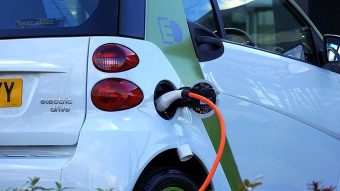
So far, though, the oil industry hasn’t seemed to give plug-in electric cars much attention. ExxonMobil and OPEC have both predicted that, even by 2040, electric cars will make up less than 10 percent of global new-car sales. But a leading credit agency believes the oil industry should view electric cars as a much more serious threat.
Fitch Ratings believes electric cars pose a “resoundingly negative” threat to oil companies, and that the industry should plan for “radical change,” according to the Financial Times.
In a report on the potential impact of battery technology on established industries, Fitch acknowledged that mass electric-car adoption could be a long, drawn-out process.
Not only are battery cells expensive, but owners do not trade in cars every year. Today, in fact, a car on U.S. roads has a median age of more than 10 years.
Nonetheless, analysts predict that electric cars will soon reach the point where they become price-competitive with internal-combustion vehicles. It’s also possible that electric-car adoption will proceed more rapidly than anticipated in “emerging markets,” such as China, the report noted.
China is indeed pushing for greater electric-car adoption to combat rampant air pollution, offering substantial incentives to consumers. Transportation accounted for fully 55 percent of global oil use in 2014, according to the Fitch report.
In an “extreme scenario,” where electric cars achieved 50 percent market share in 10 years, a quarter of Europe’s gasoline demand could evaporate, the report said. As revenues decrease, Fitch also believes worried asset holders may sell their shares in oil companies, leading to an “investor death spiral.”
This has already happened to the coal industry, with multiple bankruptcies of large North American producers. Many analysts now believe that coal yet to be mined will remain a “sunk asset,” or a good with little value that will stay in the ground forever.
While much of today’s oil industry remains ignorant of the potential impact of battery technology, the article suggests that some appear to be preparing for a future of decreased oil consumption. French oil company Total bought battery maker Saft earlier this year, and BP is investing in wind energy.
Aside from oil companies, the government of Saudi Arabia hopes to use saved oil revenue to fund investments, which officials believe could form the basis of the country’s economy if oil production slows.
And it’s not only oil companies, though they may face the largest threat from electric cars. The Fitch report also noted that electric utilities could be impacted by the use of stationary battery packs for energy storage. Energy-storage systems improve the usability of renewable-energy sources like wind and solar by saving excess power for later use. This could make wind and solar more competitive with fossil fuels, according to Fitch.
Source: greencarreports.com


